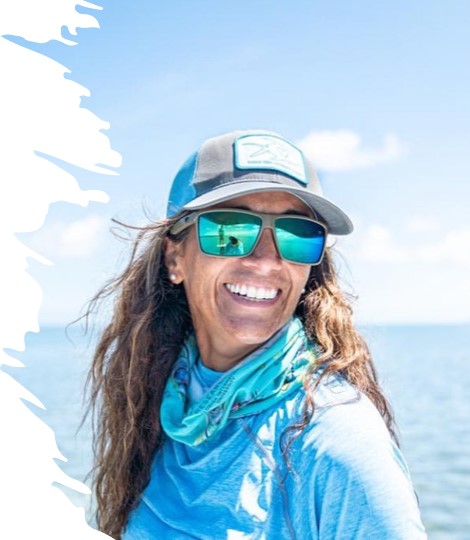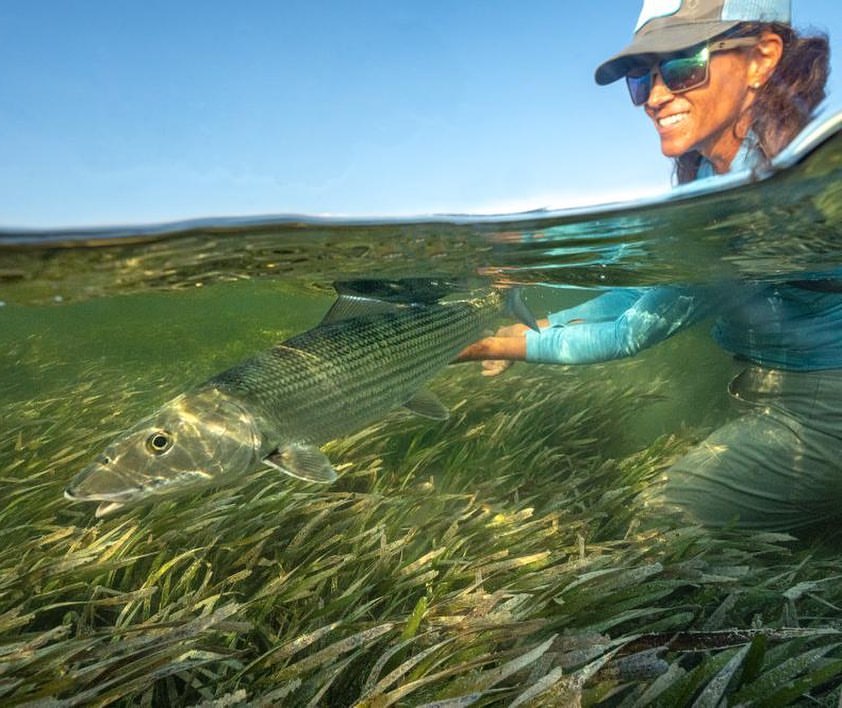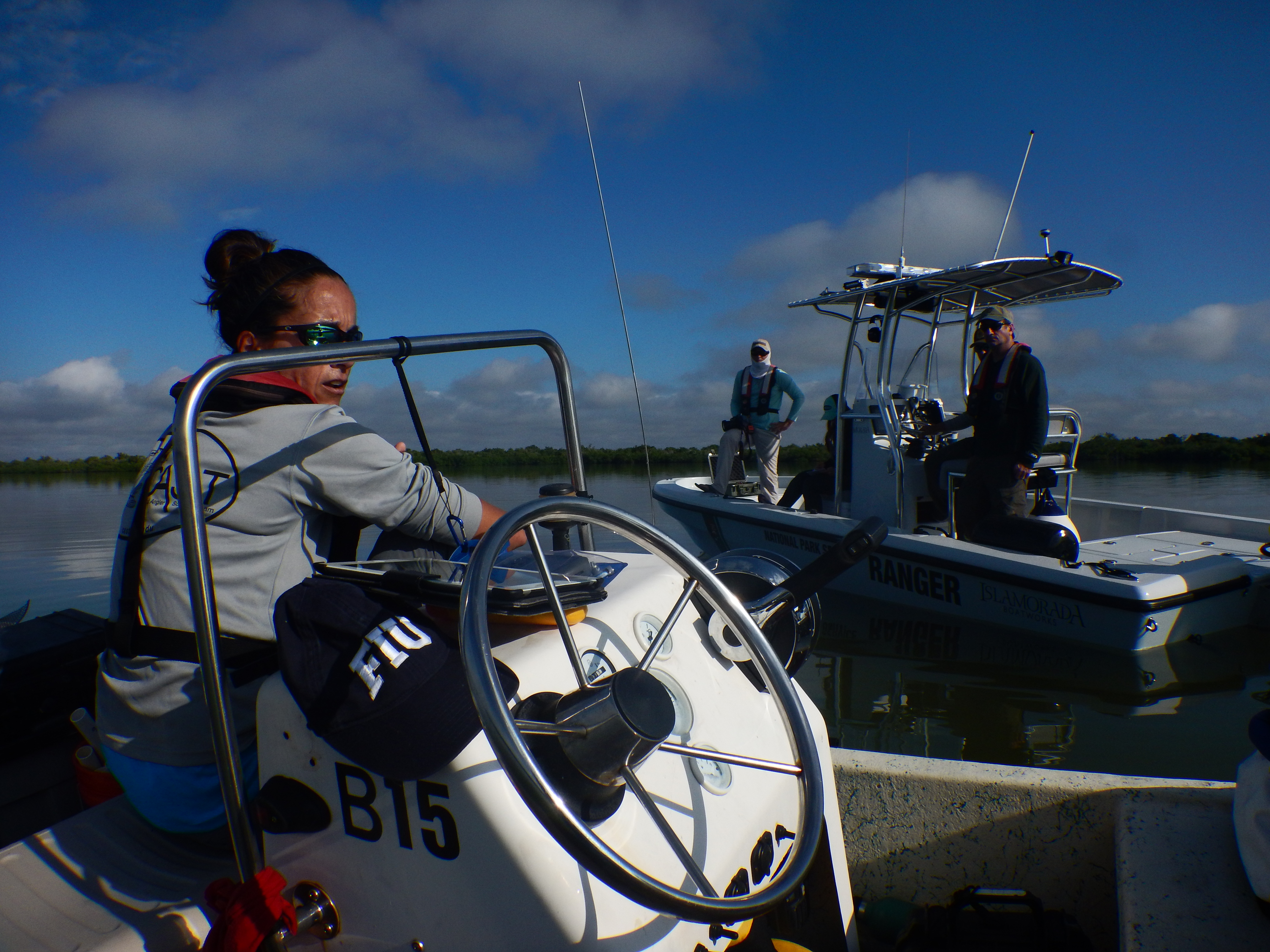Dr. Jennifer Rehage
Dr. Jennifer Rehage
Email: rehagej@fiu.edu
The Santos Lab has strong collaborative and mentoring ties with Dr. Jennifer Rehage, PI of the Coastal Fish Ecology and Fisheries Lab. Her and our lab have several overlapping projects, espcially those seeking to understand fish movement across seascapes. Thus, we have deemed each other "sister labs," and are very proud to have such strong ties with an incredible lab. Dr. Rehage is a coastal ecologist, with expertise on fish ecology, recreational fisheries, and disturbance ecology. Her research program broadly focuses on how fish and fisheries respond to hydroclimatic variation and extreme disturbances and on the implications of these responses for their sustainability and to pressing water resources and climate challenges.

Over the past decade at FIU, Jenn's lab has been focusing on Everglades fisheries and in better understanding how fish track hydroclimatic variation across coastal seascapes to inform how fish and the fisheries they support will respond to the tension of climate change and ongoing restoration efforts. We consider ourselves extremely lucky to work in the Everglades! Like other subtropical ecosystems, the ecology of the Everglades is governed by a pulsed disturbance regime, and the system has been subject to intense hydrological modification, allowing us to examine how fish communities respond to the interaction of natural and anthropogenic disturbances and the implications of this for the ability of coastal areas to provide key ecosystem services such as recreational fisheries. Ongoing research efforts aim to understand how fishes move through their seascapes, what drives these movement, how those movements fit into large-scale ecosystem processes and what are the consequences for socio-economically valuable recreational fisheries. Her lab's research mainly focus on key recreational species such as: Tarpon, Snook, Bonefish, Florida Bass, Jack Crevalle, and Redfish.
Our research approach to studying fish and fisheries is holistic and integrative. We consider recreational fisheries as inherently a coupled socioecological system, and thus blend in our research human and ecological dimensions in our studies. For instance, recent studies involve angler knowledge as a way to better understand data-limited species and have made strides to make these type of data quantitative and integrated into other types of data. We like to look at coastal fisheries problems through an individual lens, that focuses on the behavior of either fish or anglers and then we scale up inquiry from individual behavior to populations and communities, and ecosystem function and the provisioning of services. Our approach to tackling fish research focuses on both understanding process  and pattern, and we thrive in conducting studies that blend these to inform management, conservation and restoration efforts. As others, we like for our research to be meaningful to society and help solve problems, and thus increasingly we find ourselves partnering with government, nongovernment and stakeholders (e.g., fishing guides associations) to coproduce research that addresses pressing societal needs and challenges and bring forth the relevance of fish and fisheries to these challenges. We are strong believers in team science and public engagement, and often collaborate with social and physical scientists, as well as with stakeholders to stretch the bounds and dimensionality of our questioning and make our findings accessible and actionable for stakeholders. We find that asking questions that cross multiple scales of ecological organization, integrate human and natural dimensions, and involve collaborative, transdisciplinary, and translational approaches resonate with who we are and maximizes our understanding in meaningful ways.
and pattern, and we thrive in conducting studies that blend these to inform management, conservation and restoration efforts. As others, we like for our research to be meaningful to society and help solve problems, and thus increasingly we find ourselves partnering with government, nongovernment and stakeholders (e.g., fishing guides associations) to coproduce research that addresses pressing societal needs and challenges and bring forth the relevance of fish and fisheries to these challenges. We are strong believers in team science and public engagement, and often collaborate with social and physical scientists, as well as with stakeholders to stretch the bounds and dimensionality of our questioning and make our findings accessible and actionable for stakeholders. We find that asking questions that cross multiple scales of ecological organization, integrate human and natural dimensions, and involve collaborative, transdisciplinary, and translational approaches resonate with who we are and maximizes our understanding in meaningful ways.
We aim for our research to contribute to our understanding of the ecology of these fisheries, and particularly of the freshwater flows-fisheries relationships that underpin fisheries production in our coasts, and importantly, of their sustainability in the face of both natural and anthropogenic disturbances. For instance, ongoing work takes a spatial approach that involves tracking of the movement and space use of valuable recreational fisheries across coastal seascapes that have suffered varying degrees of transformation due to human impacts (e.g., chronic decreases in freshwater inputs, hypersalinity and seagrass die-off), while informing federal and state water management practices, and partnering with fishing guides to derive hypotheses about fishery responses based on angler knowledge.
